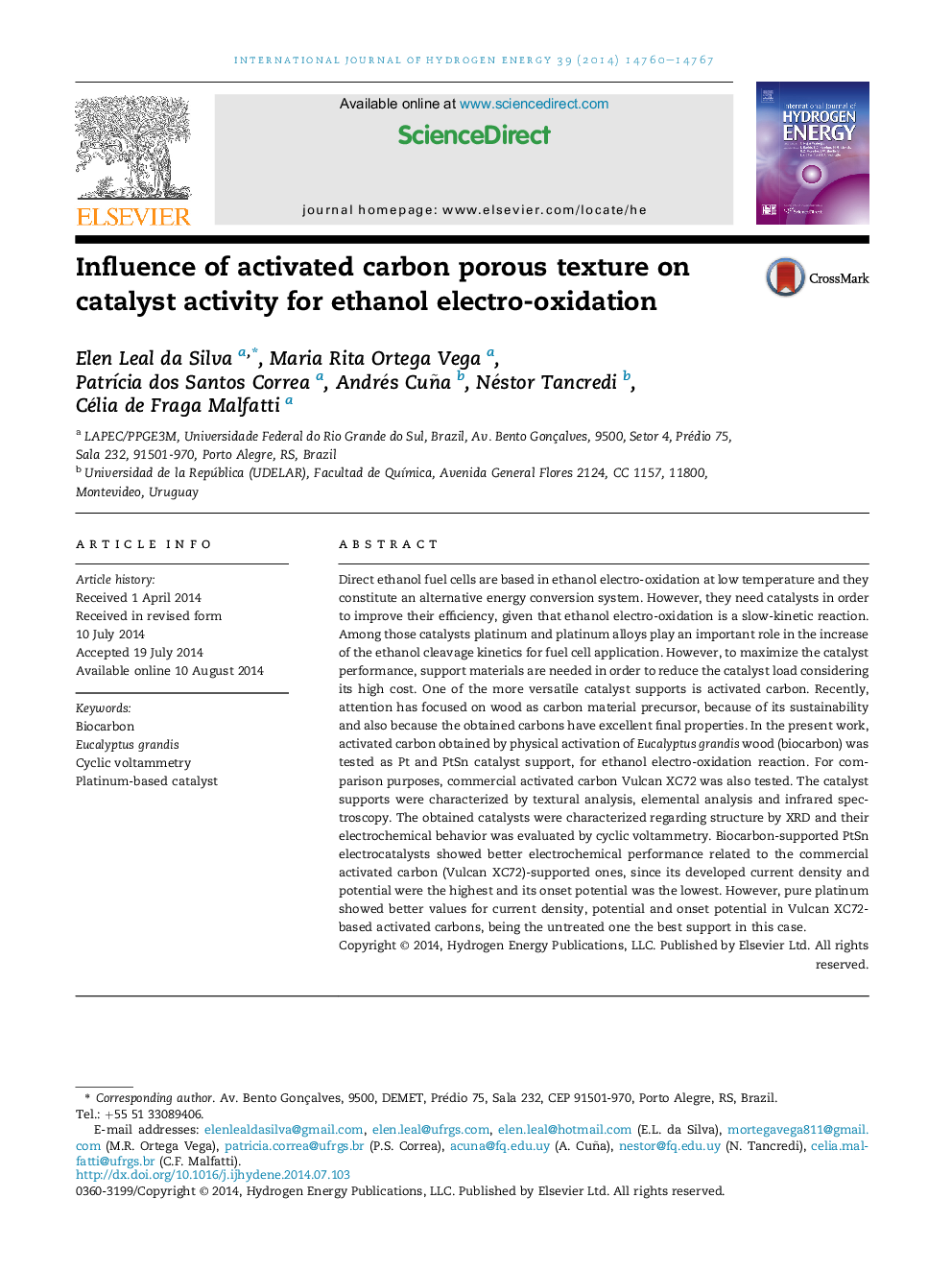| Article ID | Journal | Published Year | Pages | File Type |
|---|---|---|---|---|
| 7718049 | International Journal of Hydrogen Energy | 2014 | 8 Pages |
Abstract
Direct ethanol fuel cells are based in ethanol electro-oxidation at low temperature and they constitute an alternative energy conversion system. However, they need catalysts in order to improve their efficiency, given that ethanol electro-oxidation is a slow-kinetic reaction. Among those catalysts platinum and platinum alloys play an important role in the increase of the ethanol cleavage kinetics for fuel cell application. However, to maximize the catalyst performance, support materials are needed in order to reduce the catalyst load considering its high cost. One of the more versatile catalyst supports is activated carbon. Recently, attention has focused on wood as carbon material precursor, because of its sustainability and also because the obtained carbons have excellent final properties. In the present work, activated carbon obtained by physical activation of Eucalyptus grandis wood (biocarbon) was tested as Pt and PtSn catalyst support, for ethanol electro-oxidation reaction. For comparison purposes, commercial activated carbon Vulcan XC72 was also tested. The catalyst supports were characterized by textural analysis, elemental analysis and infrared spectroscopy. The obtained catalysts were characterized regarding structure by XRD and their electrochemical behavior was evaluated by cyclic voltammetry. Biocarbon-supported PtSn electrocatalysts showed better electrochemical performance related to the commercial activated carbon (Vulcan XC72)-supported ones, since its developed current density and potential were the highest and its onset potential was the lowest. However, pure platinum showed better values for current density, potential and onset potential in Vulcan XC72-based activated carbons, being the untreated one the best support in this case.
Related Topics
Physical Sciences and Engineering
Chemistry
Electrochemistry
Authors
Elen Leal da Silva, Maria Rita Ortega Vega, PatrÃcia dos Santos Correa, Andrés Cuña, Néstor Tancredi, Célia de Fraga Malfatti,
